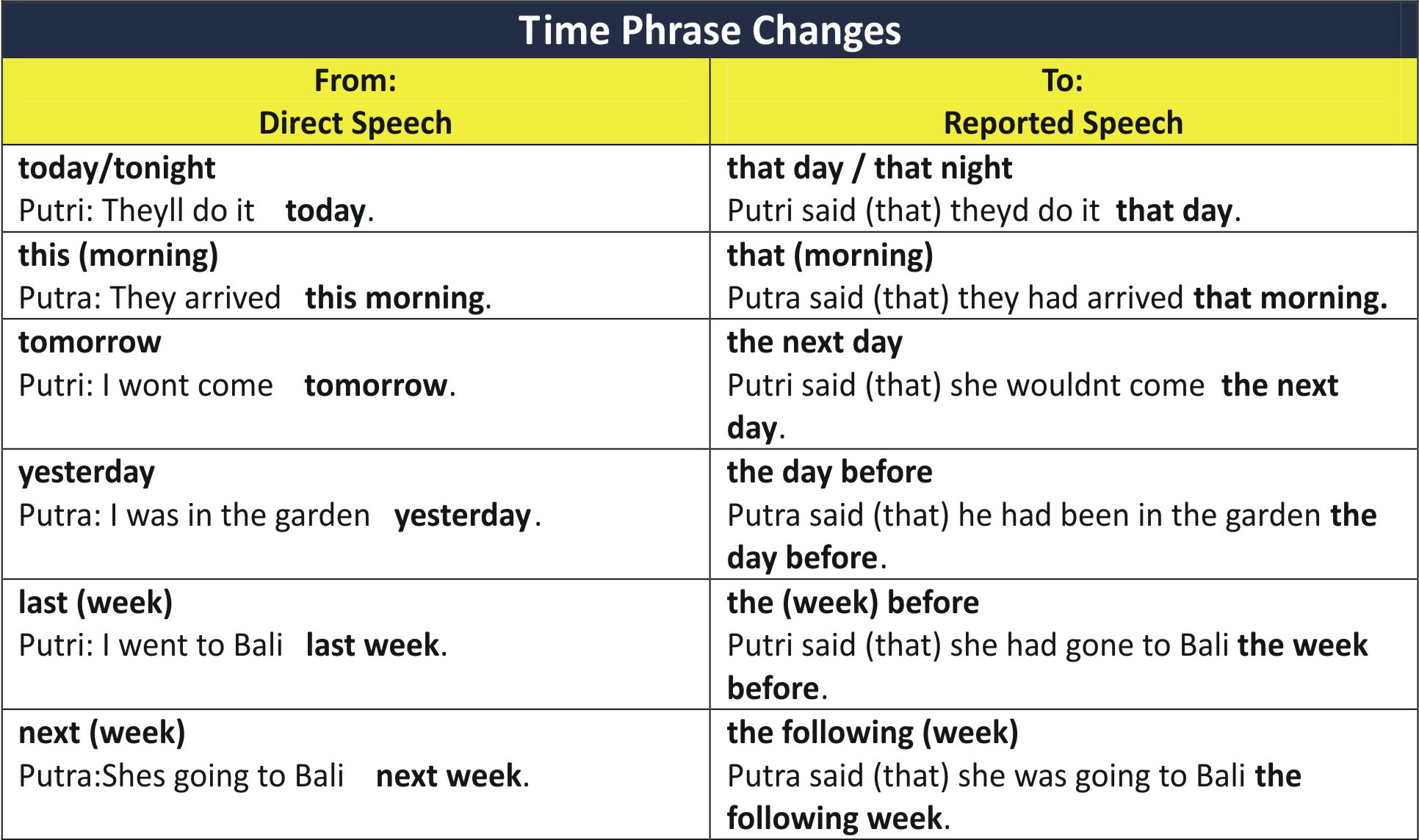politeness. 3. Second language only. 4. Use no words they don't know. 5. Contests that challenge.
People always ask each other to repeat what they have said. Without being nosy (or even with it) people always ask each other what they have heard. The fact is, most of what people say is a repetition of what they had heard or a regurgitation of what they have read and learned. This sharing of other people's data is commonly referred to as "reported speech."
No one can be fluent in English as a Second Language until they have mastered the art of gossip, asked others to repeat what was not heard or understood, shared information, or clarified what they have heard. Of course it is incumbent on the native English speaker to rephrase when repeating information to a student, but for the gymnastics of English grammar and language arts, there is nothing better for the student than to report the speech they have heard and practice shifting gears in English discourse.
For native English speakers and ESL students alike, there is no better way to make sure you understand instructions and directions than to repeat back what you have just heard and get affirmation or correction. The listener may be victim to mumbling, unknown lexicon, or simply distracted by background noise, or even handicapped by a medical condition such as hearing loss or tinnitus. In any case, reporting speech is a remedy for non-comprehension.
Certainly, in the classroom, there is no better way to get students' undivided attention than to ask them to report what you have asked them or how they and their classmates have responded. It will keep students on task and paying attention or risk losing face to classmates in discourse by not knowing what they said. Students will judge each other's friendship by how much attention they give to what they said. In all case scenarios, the teacher holds the ace and can draw the card when necessary to win over the class; it sure beats scolding or punishing a student for being inattentive. A losing situation turns into a prime moment to learn. Furthermore, interrupting students engaged in private classroom chatter brings the errant students back on task.
ESL teachers must use reported speech with their classes or they can risk kissing their students' attention "goodbye" and losing control of a class. Once that happens, the teacher may never find a way back into the driver's seat without a class of back-seat wiseguys questioning everything the teacher does. Reported speech always acts as a tool to revision and review in the classroom, in real time, before the culmination of class when finding out what your students have learned may be too late.
There are four types of reported speech, each with its own set of corresponding grammar.
1. Reported Statement - A sentence is reported thus:
T: I like apples.What did I say?
S: You said you like apples.
2. Reported Yes/No Question - A question with a "yes" or "no" answer. For example:
T: Do you ride a bicycle? What did I ask?
S: You asked if I ride a bicycle.
3. Reported Wh-question -A question that is answered with information, like this:
T: Where do you live? What did I ask?
S: You asked where I live.
4. Reported Imperative - A command or request:
T: Stand up! What did I say?
S: You told me to stand up.
T: Please stand up. What did I say?
S: You asked me to stand up.
Did you notice that all the reported answers are in the present tense? I do this for a first year ESL student who has not learned other tenses besides the present and present continuous. At a higher level, students can be challenged with the tense shift (see chart below) and special time phrase (see that chart below, too.)
You can Google "Reported Speech" for dozens of level-specific exercises and other details. However, if you use the basic approach to reported speech from day one in your class, you will save yourself a lot of grief and give the students the gift of discourse.
There is a contest for this, as there is for every English detail you share with your students:
1. Divide the class into two or three teams (or individuals).
2.Give each student a letter (A, B, C, etc.)
3. Write (or say) a direct speech sentence, question, or imperative.
4. Give the students one minute to prepare their reported answers.
5. After a minute, randomly call out a letter, like "A."
6. The "A" students go to the board and write their reported speech answer.
7. They are listed in the order they sit back down.
8. Go over the answers and assign points for the winner, 3, 2, 1 point or none.
9. Repeat the process with another direct speech sentence or question.
10. The team with the most points at the end of the contest is the winner. Reward the students.
[EDITORS NOTE: This has been Part #1 of a five-part article "Do The Following and You Will Succeed as an ESL Teacher." Part # 2- Model Politeness #3 Second language only, #4- Use no words they don't know, and #5 - Contests that challenge are to follow. ]
Follow my posts at: https://www.facebook.com/eeodbt



No comments:
Post a Comment